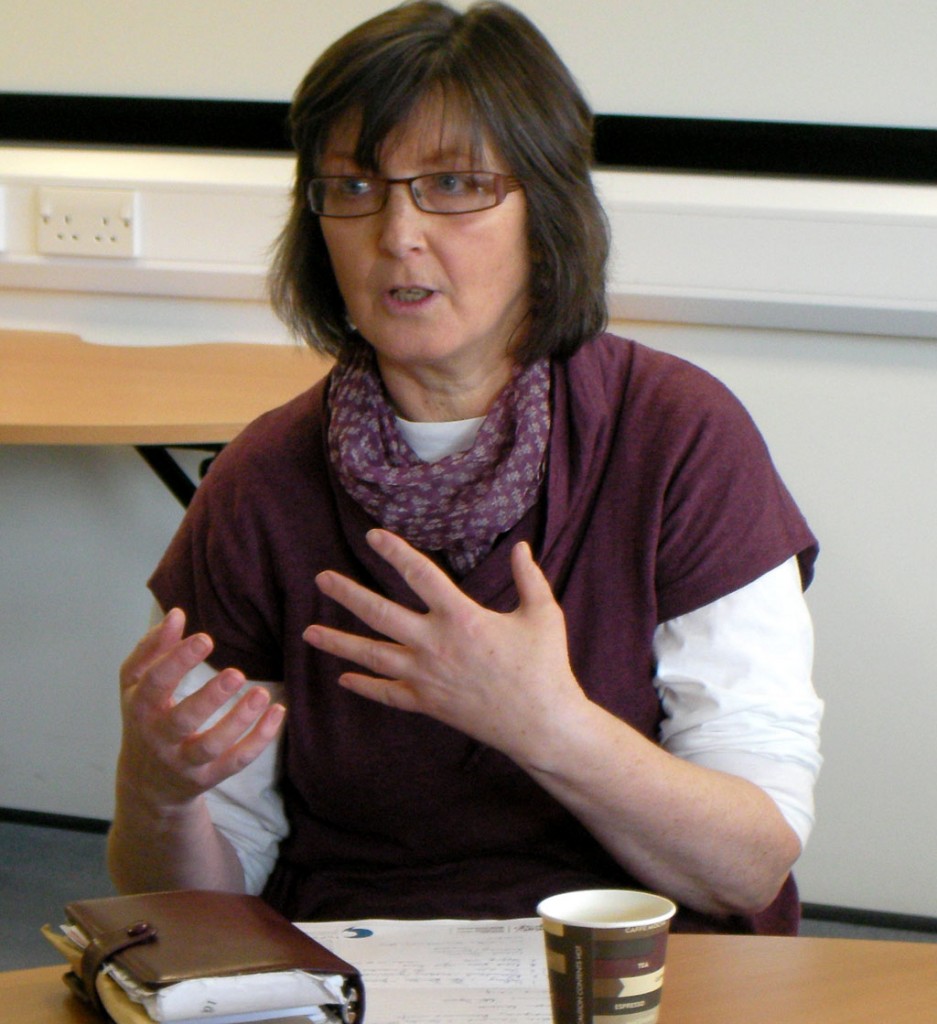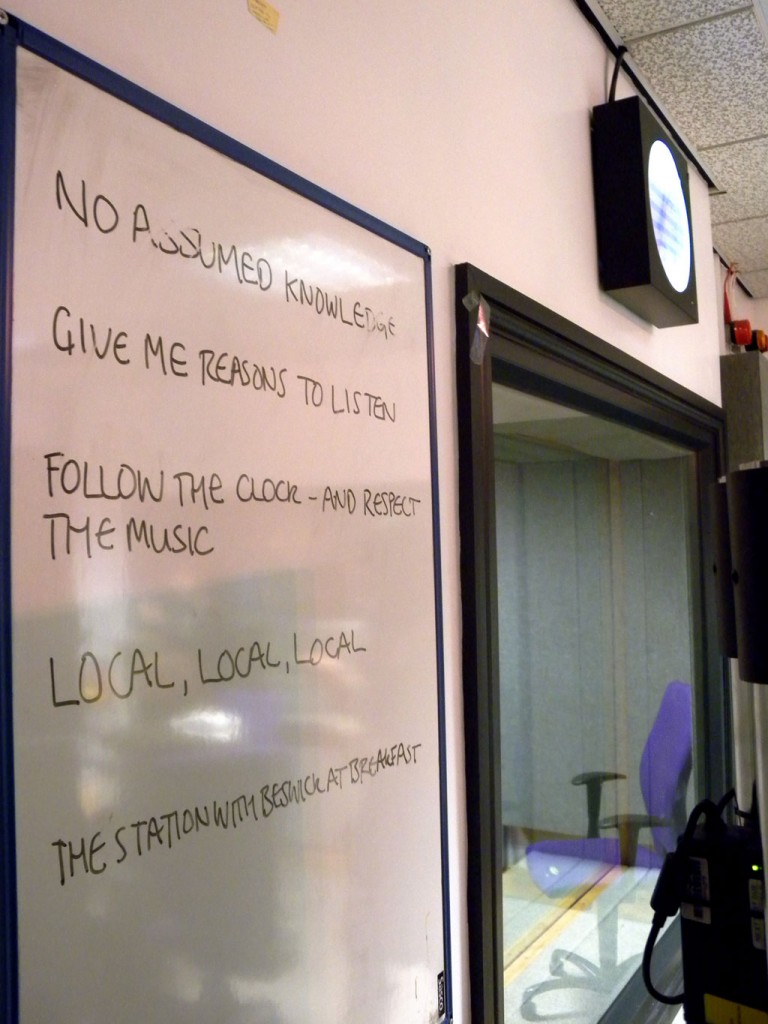Sian Pari Huws (pictured above) has handled politicians, producers and people all across Wales as a reporter and presenter for BBC Radio Wales and Radio Cymru.
This week she faced second-year Broadcasting and Journalism students from Glyndwr University (pictured below) to offer thoughts and advice on going freelance in the fast-changing media climate.
Topics included stagnating rates of pay, the role of sheer luck and the advantages of a portfolio career.
“One of the biggest changes in my time relates to the skill set,” says Anglesey-based Sian. “I think I have survived so long in the industry as I have many strings to my bow. The more you can do, the more use you are to people.”
In recent years Sian has diversified from high-profile presenting roles to take on voiceover work and media training. Yet she retains the work ethic of a professional freelancer. She says:
“You can’t get away with having a bad day as a freelancer. You’re only ever as good as your last job.”
Sian also offered some practical tips for students. While writing and pitching is the day-to-day task, she explained, a key part of being freelance relates to running your own business, hence:
- Get a good accountant
- Always ask to be paid gross
- Put 0.25% of all pay aside to meet bi-annual tax payments
- Keep a reserve of roughly three months salary in the bank as a rainy-day fund
Following the press conference-style session, the students recorded individual video-journalism interviews to submit as part of a portfolio work about freelance life.
The first part of the assessment was based round a field trip to MediaCityUK in Salford.
“If I had my time again I’d do the same thing,” says Sian. “For me, freelancing just makes life so much more interesting.”
What are your top tips for aspiring freelancers? Do you agree with Sian’s advice?
Post your comments below.




